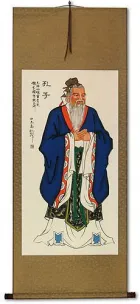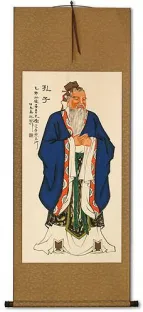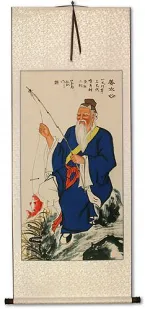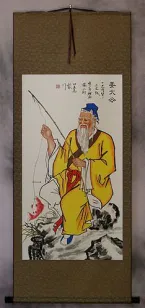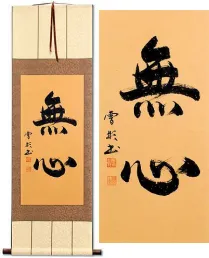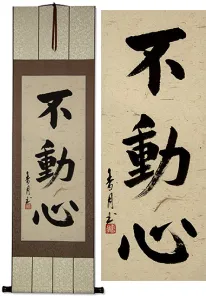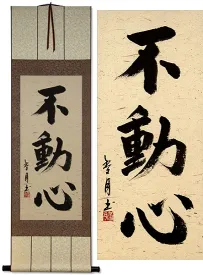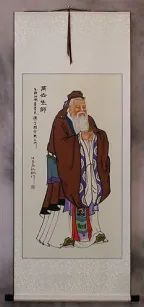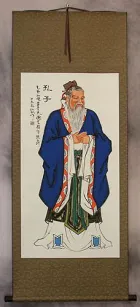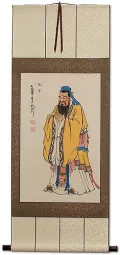Many custom options...
And formats...

A Wise Man Changes His Mind in Chinese / Japanese...
Buy an A Wise Man Changes His Mind calligraphy wall scroll here!
A Wise Man Changes His Mind (but a fool never will)
君子豹変す is a Japanese proverb that suggests that a wise man is willing to change his mind, but a fool will stubbornly never change his.
The first word is 君子 (kunshi), a man of virtue, a person of high rank, a wise man.
The second word is 豹変 (hyouhen), sudden change, complete change.
The last part, す (su), modifies the verb to a more humble form.
The “fool” part is merely implied or understood. So if wise and noble people are willing to change their minds, it automatically says that foolish people are unwilling to change.
This in-stock artwork might be what you are looking for, and ships right away...
Gallery Price: $200.00
Your Price: $79.88
Gallery Price: $200.00
Your Price: $118.88
Gallery Price: $200.00
Your Price: $118.88
Gallery Price: $202.00
Your Price: $111.88
Gallery Price: $106.00
Your Price: $58.88
Gallery Price: $79.00
Your Price: $43.88
Gallery Price: $65.00
Your Price: $39.88
Not the results for a wise man changes his mind that you were looking for?
Below are some entries from our dictionary that may match your a wise man changes his mind search...
| Characters If shown, 2nd row is Simp. Chinese |
Pronunciation Romanization |
Simple Dictionary Definition |
君子豹変す see styles |
kunshihyouhensu / kunshihyohensu くんしひょうへんす |
More info & calligraphy: A Wise Man Changes His Mind (but a fool never will) |
君子は豹変す see styles |
kunshihahyouhensu / kunshihahyohensu くんしはひょうへんす |
(exp,vs-c) (1) (proverb) (See 君子豹変・くんしひょうへん・1) a wise man changes his mind, a fool never; the wise adapt themselves to changed circumstances; (exp,vs-c) (2) (proverb) (colloquialism) the wise make no scruple in suddenly changing their demeanor |
The following table may be helpful for those studying Chinese or Japanese...
| Title | Characters | Romaji (Romanized Japanese) |
| A Wise Man Changes His Mind (but a fool never will) | 君子豹変す | kun shi hyou hen su kunshihyouhensu kun shi hyo hen su |
Successful Chinese Character and Japanese Kanji calligraphy searches within the last few hours...

